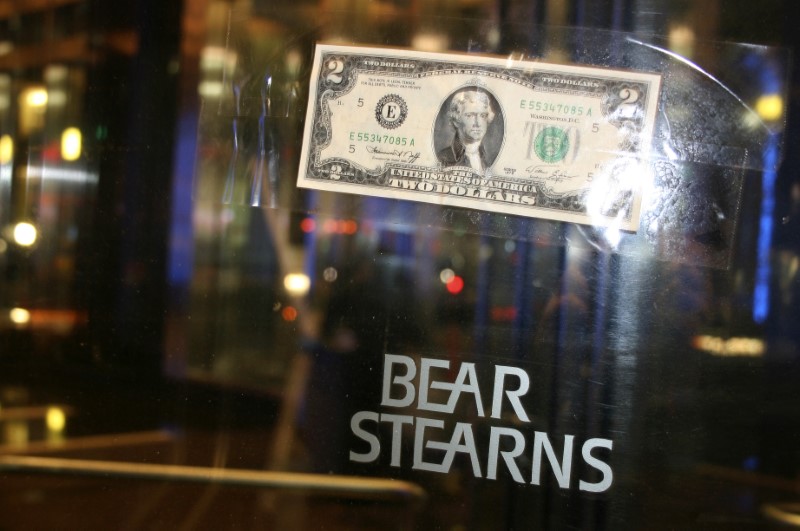(The writer is a Reuters contributor. The opinions expressed are his own.)
By Chris Taylor
NEW YORK (Reuters) - It is difficult to describe to someone who did not live through the financial crisis of 2008-09 how it felt at the time.
But Perry Rahbar will give it a shot. He was 26 and a managing director in the mortgage division of Wall Street legend Bear Stearns, where he worked his way up from intern. He ran a large trading book and had a glittering future.
Then, in the space of about a week – exactly 10 years ago – Bear Stearns blew up in spectacular fashion, before being picked up for next-to-nothing by J.P. Morgan.
That was the opening salvo in a crisis that would bring many of the nation’s largest financial institutions to their knees, eventually claiming the scalp of Lehman Brothers, which was driven into bankruptcy.
“It was like being punched in the face and getting knocked out,” recalls Rahbar, now founder at dv01, a hub that links lenders and capital markets. “Then you wake up and go: ‘What the hell just happened?’ ”
For a while, it seemed like the entire financial system – the lenders who owned your mortgage, the banks and brokerages who held your accounts, the ATMs that gave you cash – was coming apart at the seams. And if it did, what then?
In retrospect, of course, we identified the primary culprits: Complex derivatives, often comprised of subprime mortgages, which were torpedoed by the housing bust. When people were no longer able to pay off their homes, these highly rated securities turned out to be little more than junk, which blew up the balance sheets of much of Wall Street.
We talked to a few traders who were in the trenches at the time and the many crises that followed. These are the three lessons they took away from those months of financial shock-and-awe:
ANYTHING CAN HAPPEN
Most of the time, the stock market lulls you into a comforting sense of security. For instance, with the current bull market into its ninth year, most investors expect that pleasant run to continue. That is called “recency bias” – the expectation that what you have seen recently, will extend into the future.
Not so. Cataclysmic, unforeseen events – so-called ‘black swans’ – have happened before, and they will happen again.
“When you see that kind of once-in-a-lifetime event, it makes you appreciate that anything can happen at any moment,” says Rahbar. “I was sitting in a Fortune 100 company one day, and the next day the rug was pulled from underneath us like we were some random startup.”
MANAGE RISK
During the crisis, Saeed Amen was on the London foreign exchange desk of Lehman Brothers, and had a front-row seat as the Titanic headed for the iceberg. What did it all boil down to for him? Too much risk taken in products that most people, even seasoned market professionals, did not fully understand.
Amen subsequently wrote a book, “Trading Thalesians: What the Ancient World Can Teach Us About Trading Today”, about the various market tumults of human history.
His conclusion: Economic booms-and-busts have happened for time immemorial and will continue in future. Investors take on too much leverage, get slammed, eventually forget about it, and then another boom-and-bust happens in yet another asset class.
What we can do as investors is be aware of our natural tendency to roll the dice, properly measure the risk in our portfolios and put adequate controls in place to stop things getting out of hand.
STICK TO WHAT YOU KNOW
Rich Marin was a famed character at Bear Stearns, head of asset management and colloquially known as “Big Rich.” His advice to all, 10 years on: Do not invest in what you do not know, and do not think you are talented enough to outsmart everybody else.
For investment pros, that means staying away from securities that are so complex and arcane that barely anyone knows how to value them, let alone desires to bid on them – which can trap you and take away liquidity.
For mom-and-pop investors, it means listening to Vanguard’s Jack Bogle, a fan of low-cost, passive index funds, and calling it a day.
“The little guy has almost no chance of beating the market, and he shouldn’t even try," Marin says. "Do what Warren Buffett does: Invest in what you know and stay in for the long haul.”
